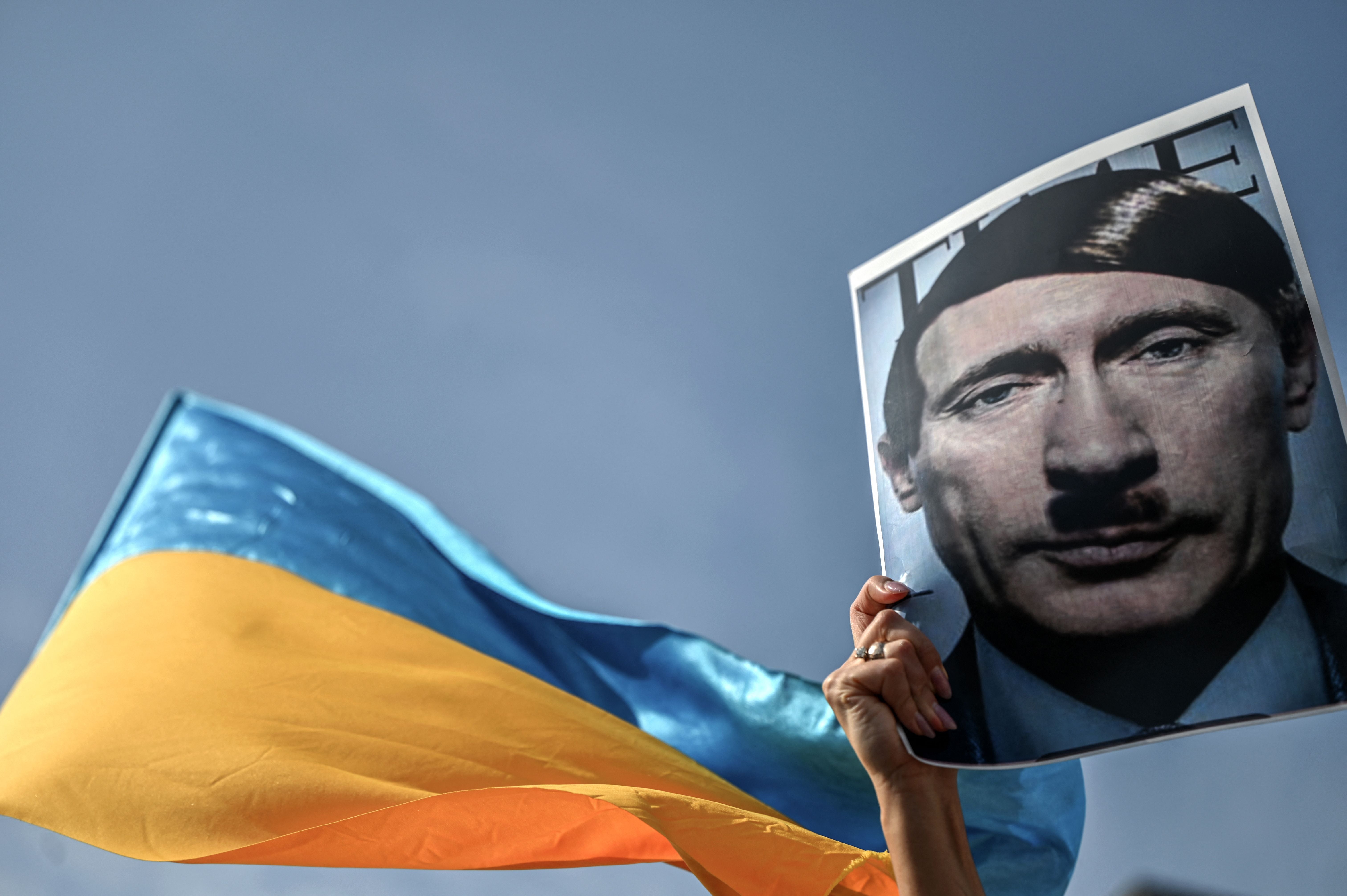Putin’s war against Ukraine is not genocide – this is why we should not conflate the two
There is no doubt Putin cares little about how many die for his cause, but this is not genocide, it is war


Your support helps us to tell the story
From reproductive rights to climate change to Big Tech, The Independent is on the ground when the story is developing. Whether it's investigating the financials of Elon Musk's pro-Trump PAC or producing our latest documentary, 'The A Word', which shines a light on the American women fighting for reproductive rights, we know how important it is to parse out the facts from the messaging.
At such a critical moment in US history, we need reporters on the ground. Your donation allows us to keep sending journalists to speak to both sides of the story.
The Independent is trusted by Americans across the entire political spectrum. And unlike many other quality news outlets, we choose not to lock Americans out of our reporting and analysis with paywalls. We believe quality journalism should be available to everyone, paid for by those who can afford it.
Your support makes all the difference.My late grandfather was just 17 when, at the turn of the last century, he left the Ukrainian village where he was born and fled to the UK for safety. His family had scraped together enough money for him to escape deadly anti-Jewish riots – pogroms – and establish a new life for himself. He never saw his family again.
Three generations later, with Ukrainian blood flowing through my own veins, I wonder what this kind and gentle man would have made of the harrowing events unfolding in his homeland right now. My guess, given his profound sense of humanity, is that he’d say as a species, we never learn. Human beings – impelled by blind ambition and with no recourse to the sanctity of life – remain auto set to function on repeat.
Such a philosophy perhaps explains the alacrity with which Putin is being compared to Hitler. Yet it’s an unhelpful analogy, especially to the victims of both.
Of course, there are parallels between the two; both are merciless dictators, ring fenced by loyalists and detached from reality, with an unwavering aim to restore their countries to their former “glory”.
In Hitler’s case, it was a determination to restore German pride and obliterate memories of the humiliating 1919 Treaty of Versailles, which led to the country losing a significant amount of its territories and footing hefty reparation costs.
Putin, meanwhile, is driven by the vainglorious desire to reunite the Soviet Union and reestablish its imperial power, following the collapse of communism and the fall of the Soviet Union in 1991. The invasion is, for the Russian leader, another step towards reuniting the 15 now-independent states of the USSR and restoring its imperial power.
Yet, as significant as these observations are, there are many things that set Hitler and Putin apart – not least their motivation.
Hitler was a grotesque, racial ideologist who systematically tried to eliminate the Jewish population. What historian Laurence Rees describes as Hitler’s “dark charisma” encouraged widespread hatred and meant that antisemitism was so deeply entrenched, the disintegrating Reich continued to murder its victims long after it became clear the war was lost. The urge to “finish the job” aced any geopolitical consideration.
As such, the Holocaust remains a singular moment in human history, a state-sponsored murdering spree that reached an industrial scale. It cannot be conflated with Putin’s war against Ukraine. There is no doubt Putin cares little about how many die for his cause. But this is not genocide. It is war.
To keep up to speed with all the latest opinions and comment sign up to our free weekly Voices newsletter by clicking here
This sort of competitive suffering is not only unhelpful, it’s a disservice to the 6 million men, women, children and babies who were rounded up, gassed, burned, brutalised and murdered, simply for being Jewish. The actions of Hitler and the Third Reich stand out as the most egregious example of naked racial hatred – and of where it can lead. To compartmentalise the Nazi leader with Putin is to sweep aside Auschwitz, Treblinka, Bergen-Belsen. It diminishes the impact, devalues the victims and decompresses the reality of racist ideology.
The menace of the Russian leader is real and terrifying, the cost to human life devastating. But the Nazi comparison obscures our capacity to explain what drives Putin. And if we try to compartmentalise them in some kind of nightmare club for despots and tyrants, we risk diluting our understanding of one of the most extreme examples of depraved human nature.
Thankfully, the Ukraine my grandfather knew is not the Ukraine of today – which is headed by a Jewish president. Gone are the dark days when he and so many others were forced to flee their homes because of brutal, localised antisemitism.
The enemy of today’s Ukraine comes not from within, but is an external force. And while we should question Putin’s actions, we also need to be careful about how we frame them. Our collective desire to extinguish evil should endure as the thing which unites us all, but we cannot undermine the past.
Join our commenting forum
Join thought-provoking conversations, follow other Independent readers and see their replies
Comments